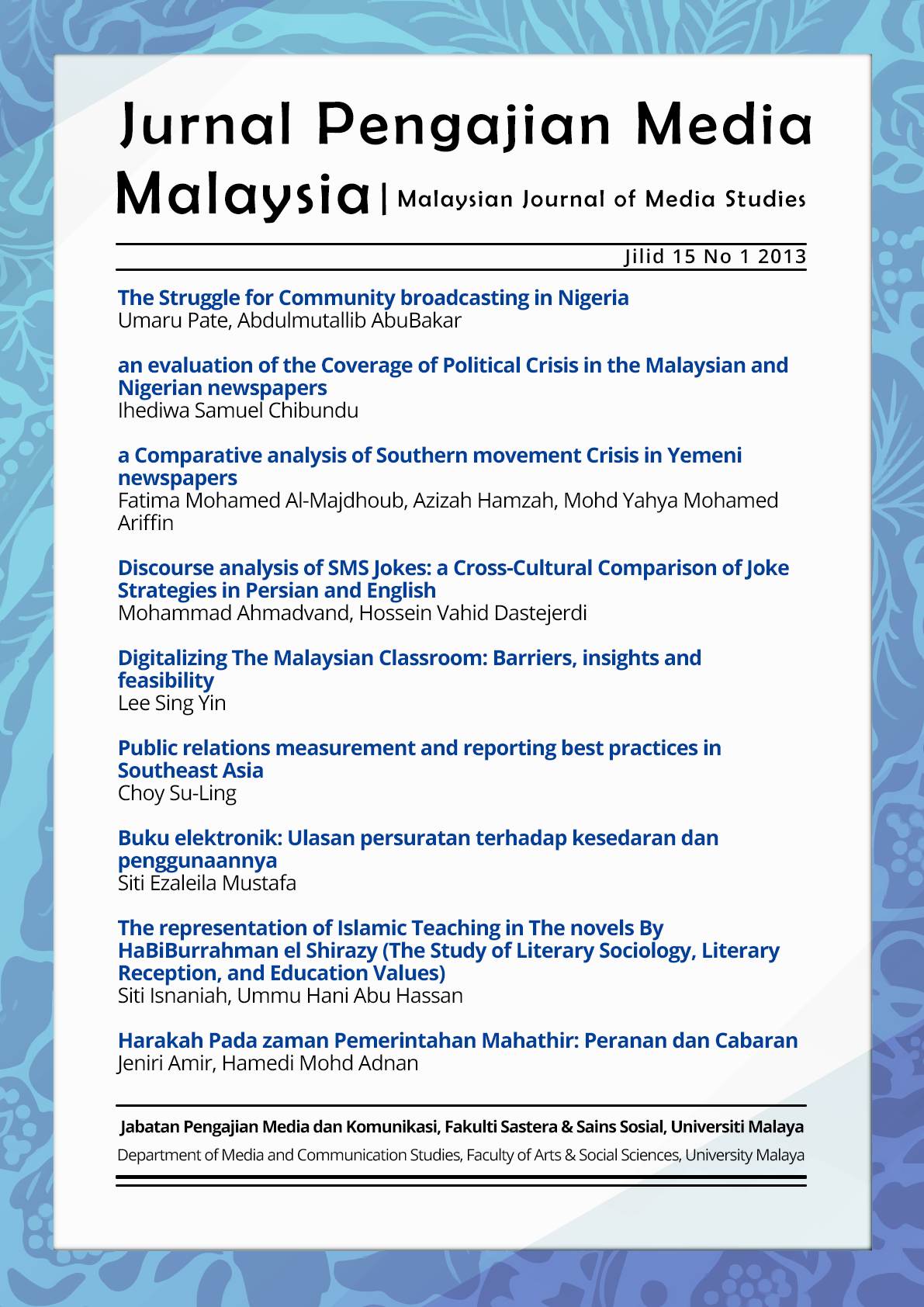an evaluation of the Coverage of Political Crisis in the Malaysian and Nigerian newspapers
Main Article Content
Abstract
The word ‘crisis’ has been used to define and identify many serious situations such as protests, terrorism, wars, diseases, among others. In this paper. Crisis reporting could be defined as the reporting of information about the state of affairs in which a decisive change for the worse is about to, or has occurred. Nigeria and Malaysia are no exception to the crisis and each of them do experience crisis now and then. The news media have a unique and exceptionally important role to play when covering a national crisis. In this regard, accurate and appropriate information about a crisis is an expectation that is required if the government of a country wants to allay fears from the public. This is because modern democracy depends on a vibrant news media to keep the public informed. At no point is this more important than in times of crisis. This is a comparative study on how newspapers in Malaysia and Nigeria reported the political crisis that characterized the two countries from 2007 to 2009. The research used content analysis to compare the coverage by newspapers in the two countries. This is aimed at determining the differences in the rate of coverage, observing the trend of crisis occurrence in the two countries, and determining the sources of information for the newspapers. The research relied on the framing theory. One of the findings of the paper is that Nigerian newspapers have significantly reported more of the crisis than Malaysian newspapers. This study has also been able to show how newspapers in the two countries differ in their reporting of the political crisis that occurred between 2007 and 2009.
Downloads
Article Details

This work is licensed under a Creative Commons Attribution 4.0 International License.
